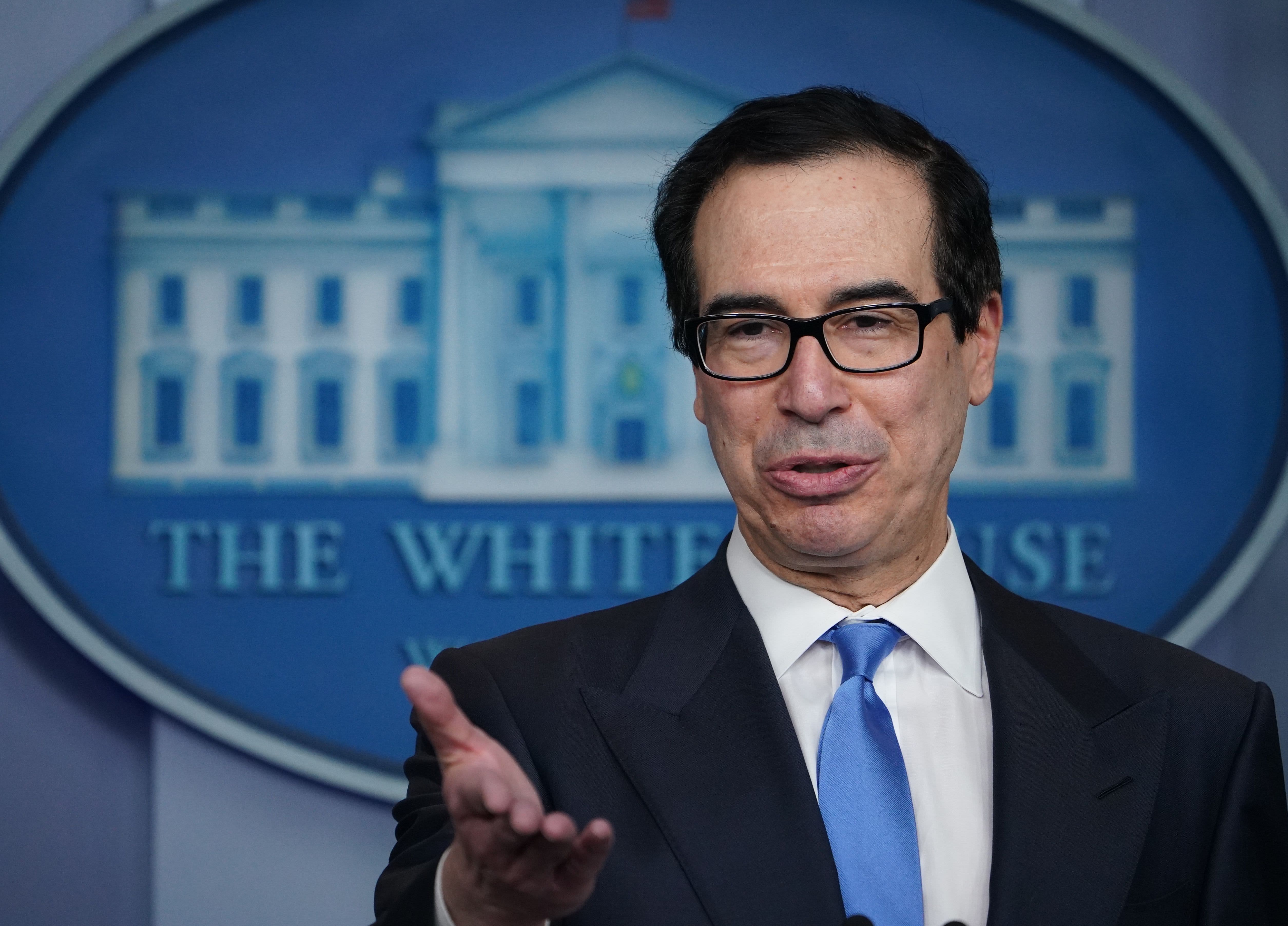Public companies that took advantage of the government’s small business loan program are likely to avoid repercussions from the agencies running the effort, according to legal experts.
Businesses have until May 18 to return funds taken from the Paycheck Protection Program with amnesty, but most of the public companies that got PPP loans are keeping them, including ones with access to other forms of fundraising like stock sales or bank credit lines, according to a CNBC analysis of regulatory filings.
That is despite a threat from Treasury Secretary Steven Mnuchin that borrowers face “severe consequences” and even criminal liability if they didn’t really need the government money. Mnuchin’s warning came at the height of an uproar last month over large companies using the PPP. Companies that could raise money elsewhere were given a deadline to return the funds.
“I want to be very clear,” Mnuchin said in a CNBC interview on April 28. “It’s the borrowers who have criminal liability if they made this certification and it’s not true.”
But lawyers advising corporate boards on their use of the PPP, a cornerstone of the $2 trillion CARES Act passed in March in response to the coronavirus pandemic, said that the certification required is so vague and open-ended that most companies qualify for the program.
“I don’t see anybody being convicted for this, honestly,” said Scott Pearson, a partner at Manatt, Phelps & Phillips. “What will scare people away is the threat of being accused. The suggestion there is criminal liability for a company that has a good argument that they were eligible for these loans based on the structure of the CARES Act is ludicrous.”
Mnuchin’s threat of criminal prosecution sowed confusion and anxiety among companies that had gotten funds and discouraged others from applying, said Pearson and other lawyers. People who knowingly make false statements to get PPP loans face up to 30 years in prison and a $1 million fine, according to the PPP application form.
The threat also succeeded in nudging some companies to return funds. As of May 15, 62 loans totaling $412 million were returned, out of the $1.3 billion that public companies received, according to data analytics firm FactSquared.
That was the point of Mnuchin’s campaign, according to Matt Axelrod, a top aide to former Deputy Attorney General Sally Yates during the Obama administration. Public companies that filled out their applications in good faith, met the legal criteria as detailed in the CARES Act, and use the funds for approved expenses like payroll don’t have exposure to criminal charges, the former Justice Department official said.
“They’re trying to use public shaming mechanisms to embarrass companies into giving money back that, technically, they’re allowed to take under the program,” said Axelrod, now a partner at law firm Linklaters.
A Treasury spokesman declined to respond to a question about whether companies faced penalties for unjustifiably tapping PPP, instead pointing to Mnuchin’s public comments and the SBA’s guidance.
At the heart of the matter is a one-sentence certification in the PPP application form that “current economic uncertainty makes this loan request necessary to support the ongoing operations of the Applicant.”
When the emergency program began in early April, businesses of all kinds were encouraged to avail themselves of the forgivable loans to maintain workers they might otherwise lay off. Since most companies have been hurt by the widespread shutdowns meant to blunt the progress of the coronavirus, this certification was seen as purposefully broad.
Once news hit that large companies like Shake Shack got loans while hundreds of thousands of small businesses were left in limbo, Mnuchin and the Small Business Administration worked to tighten controls on the effort, issuing new guidance that it was unlikely that public companies with “substantial market value and access to capital markets” could make the certification in good faith.
As the program stretched into its sixth week, however, the agencies updated their guidance again, effectively backing off from their earlier threats. The SBA said on May 13 that PPP loans below $2 million would be assumed to have been made in good faith, clearing the vast majority of legitimate businesses from scrutiny.
The move was ostensibly so the government could focus its resources on examining loans that were bigger than $2 million. But even in cases when an audit reveals that a borrower shouldn’t have taken the loan, the SBA will simply ask for repayment of the money. If a company does that, the SBA said it “will not pursue administrative enforcement or referrals to other agencies.”
That change lowers the risk even further that companies keeping PPP loans will have cases referred to the Department of Justice or the Securities and Exchange Commission, legal experts said.
Still, companies may be vulnerable to whistleblowers who file lawsuits under the False Claims Act, used to combat companies that defraud the government, as well as the actions of state attorneys general who may be looking to make a name for themselves, according to Ed Zimmerman of Lowenstein Sandler.
Overall, the latest changes may give ammunition to critics who charge that the government is too lax in its oversight of this historic stimulus effort. Lawmakers and news outlets have pressed for a full list of companies that have tapped the PPP; so far only public companies have had to disclose their use of the program.
When it comes to blatant criminal activity like fraudsters who fabricate employees or whole businesses, the Justice Department has said it is reviewing data from the SBA and banks for anomalies in payroll information.
The agency has already moved to charge four applicants for inventing non-existent companies and workers or using PPP money for unapproved purposes like buying jewelry.
